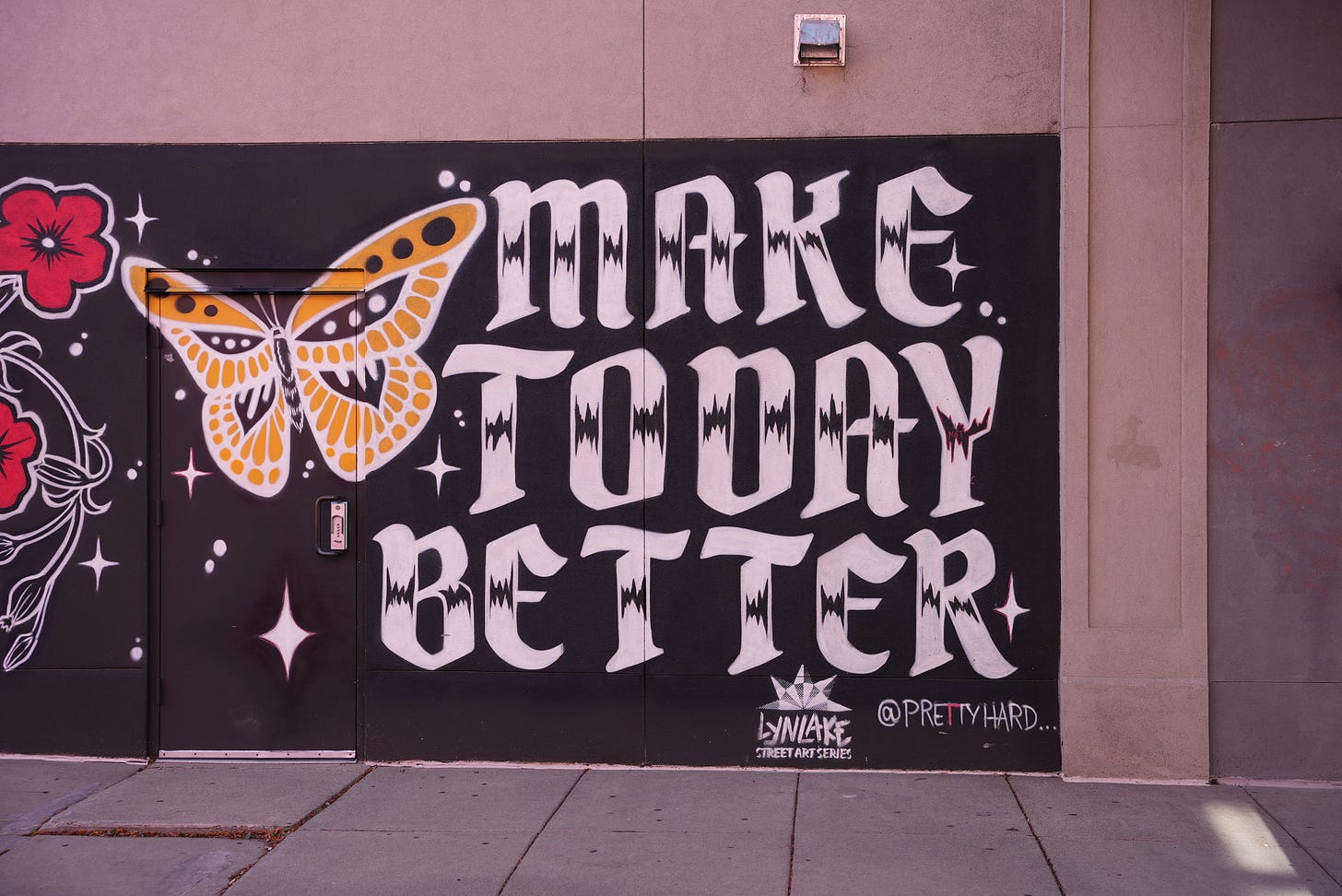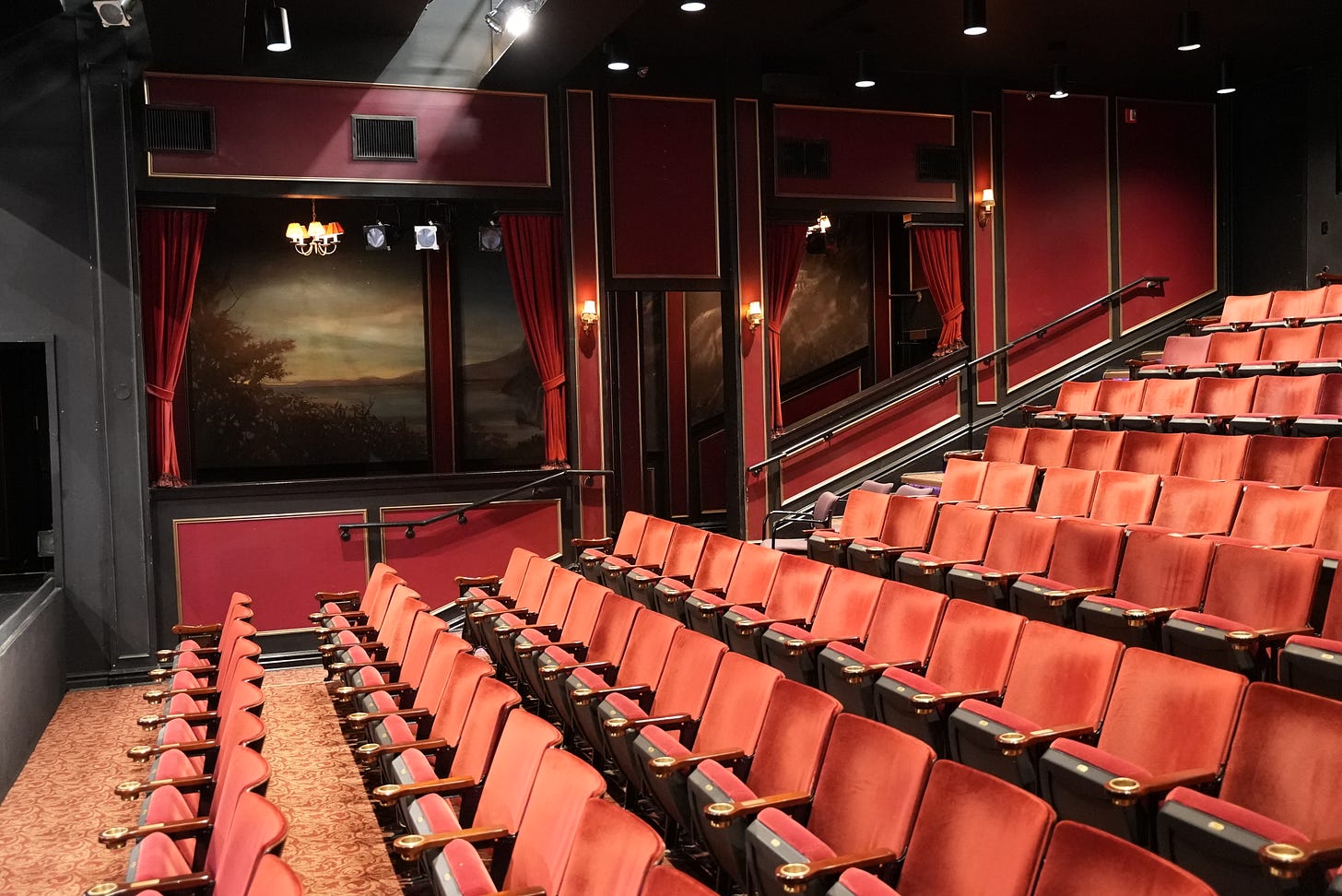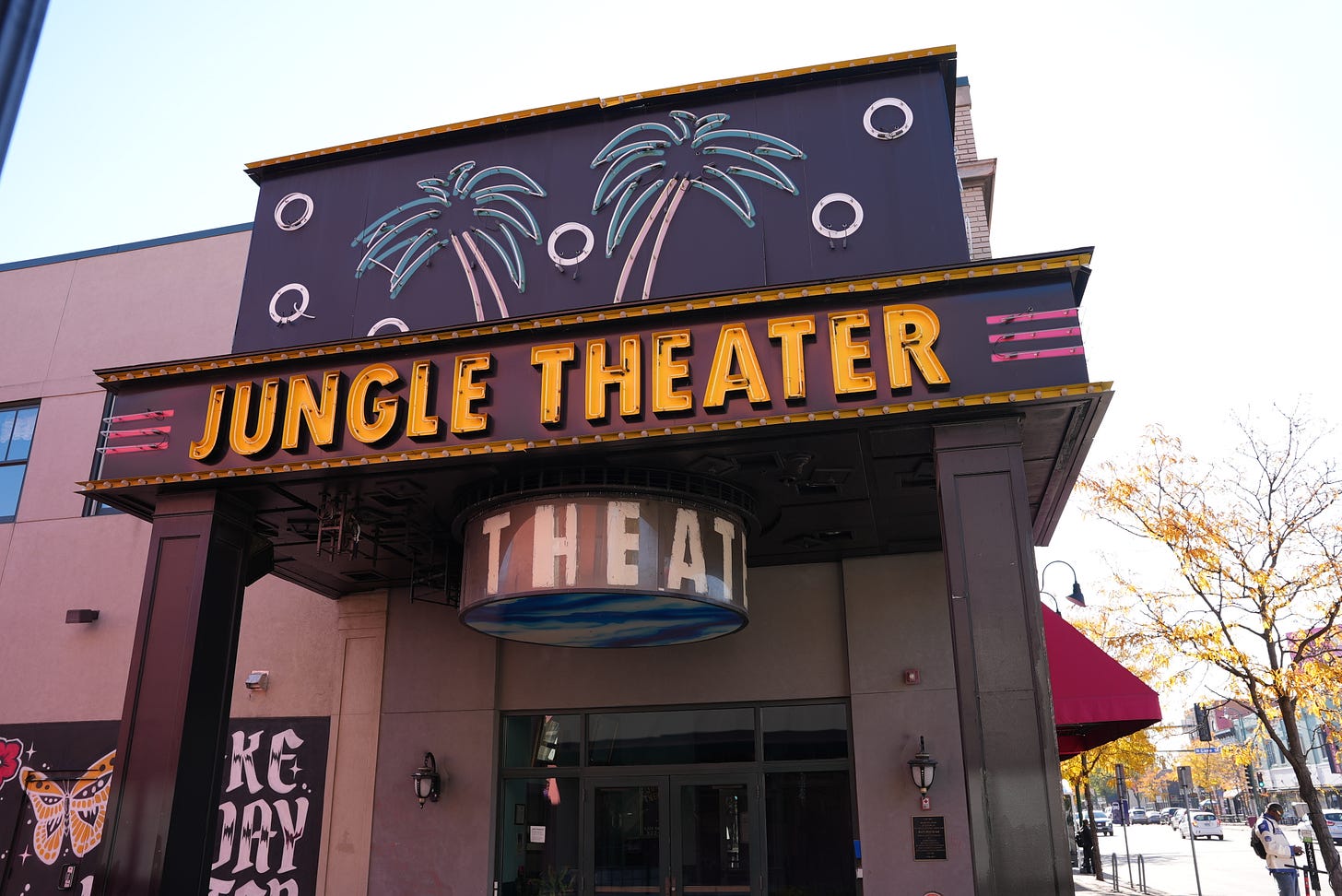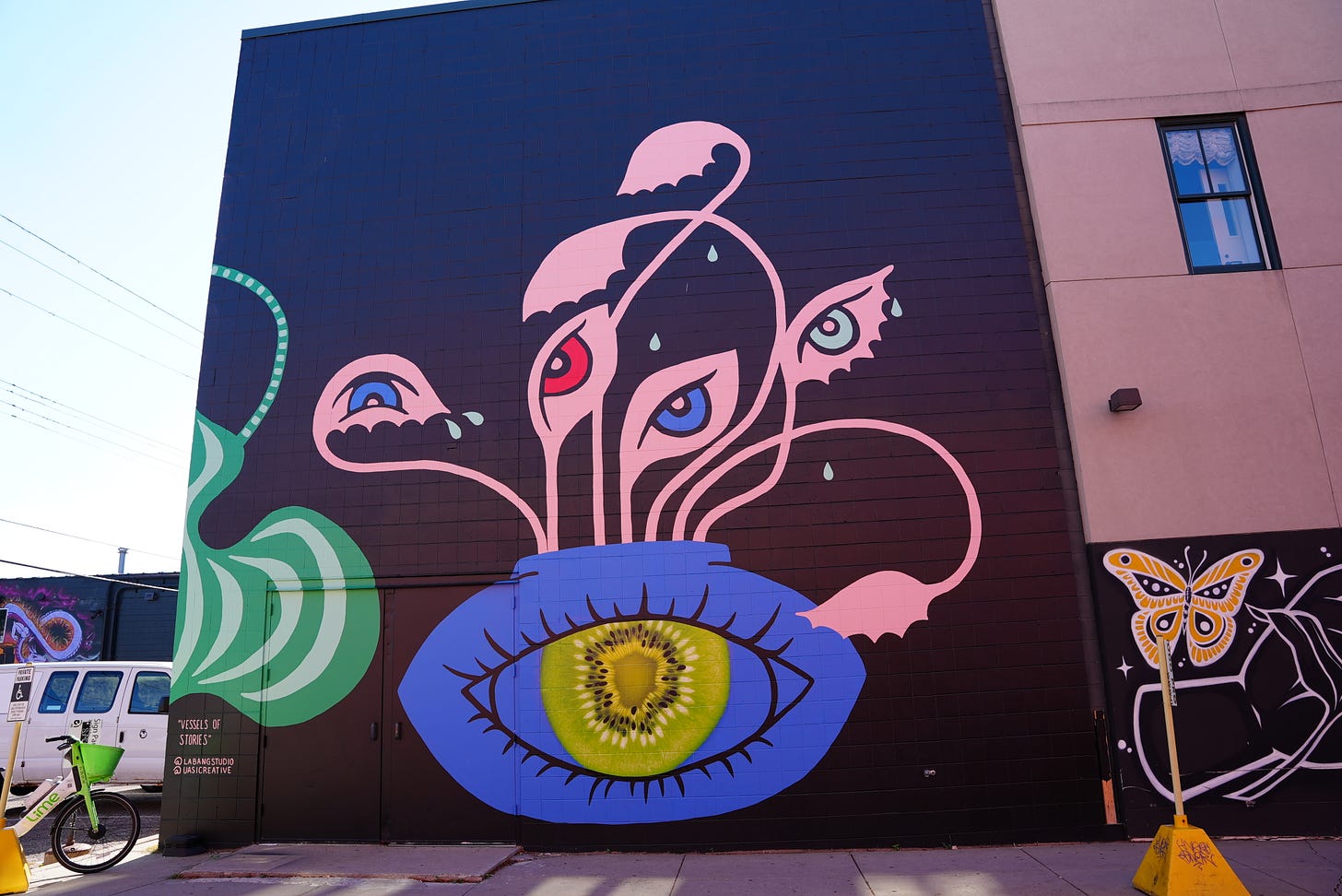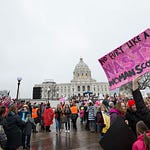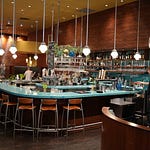Introduction
It may seem unusual for Better Minneapolis to interview Christina Baldwin, artistic director of the Jungle Theater, and Rachel Murch-D’Olimpio, managing director. We’re not stepping into the theater review business, but we wanted to hear directly from them about how recovery is progressing four years after COVID. The city lifted its mask mandate on July 1, 2021, but the return to normal has been uneven.
While much has improved, small businesses and arts organizations continue to struggle. Audiences haven’t returned in the same numbers, whether due to lingering perceptions about safety, construction, or the simple reality of tighter household budgets. For theaters like the Jungle, that means producing fewer shows each season. And that reduction ripples outward — affecting the performers, stagehands, and designers whose livelihoods depend on steady work. The Jungle employs 100 union workers each year. When ticket sales dip, so do opportunities.
Many of these businesses are in a difficult position. They recognize the challenges — crime, addiction, and instability — but speaking too loudly about them risks driving away the very customers they need to survive. That’s why swift, visible action from the city is crucial to their survival. If these businesses fail, the jobs go with them, and the neighborhood’s recovery becomes even harder.
It’s the restaurants, bars, fitness studios, and cultural venues that give Minneapolis its vibrancy. They create jobs and community life, but they also depend on the city delivering basic services. When city services fall short, small businesses pay the price — fighting not just for customers’ attention, but against construction, graffiti, and safety worries, all while struggling to keep the lights on.
This week brings some long-awaited relief: the Hennepin Avenue construction officially wraps up Friday. Many nearby businesses are holding their breath, hoping patrons will return. Lyndale Avenue is next in line for disruption, and some businesses are already closing or relocating in anticipation.
So now is a good time for a night out. Forget the campaign noise for an evening — catch a show, support local restaurants, and help keep Minneapolis’s creative spirit alive. The Cherry Orchard has been extended through November 9 at the Jungle Theater.
Conversation Summary
Setting the Stage in Uptown
At the Jungle Theater in the Lyn-Lake area, artistic director Christina Baldwin and managing director Rachel Murch are keeping Minneapolis’s creative heartbeat strong — even as the neighborhood around them changes. The Jungle, once a bar with more 911 calls than any other in the city, has evolved into a small but mighty cultural anchor since its 1999 opening. With 150 seats and a reputation for craftsmanship and intimacy, it stands as both a neighborhood fixture and a reminder of what community-centered art can accomplish when supported.
A Theater Rebuilding After Upheaval
Like nearly every performing arts organization, the Jungle was hit hard by the pandemic and the aftermath of the 2020 unrest. Audiences are returning — slowly and differently. Many patrons are new, drawn by the theater’s “pay as you are” ticket model, which makes live performance as accessible as a movie night. Yet Baldwin and Murch see the long-term challenge clearly: funding structures have shifted, the arts workforce is still rebuilding, and the pandemic’s economic scars continue to affect both artists and audiences.
Construction, Confusion, and Communication
For the Jungle, the next big act is survival through construction. The upcoming Lyndale Avenue reconstruction — following the prolonged disruption on Hennepin — looms large. Murch described watching neighboring businesses close in anticipation, knowing how easily unclear or inconsistent updates can drive people away. What the theater needs most, she said, is reliable communication from the city and county about schedules, closures, and access. Without it, even loyal theatergoers may decide it’s simply easier to stay home.
Changing the Narrative About Uptown
Beyond construction, both say Uptown’s reputation has become another barrier. While the area is safe and welcoming, perceptions fueled by media coverage and social media have made some visitors hesitant. News footage of incidents often includes the Jungle’s sign in the background — inadvertently linking the theater to stories about crime or decline. “We’re caught between perception and reality,” Baldwin said, calling for a new, coordinated narrative from city leaders that highlights Uptown’s resilience, creativity, and small business community.
Finding a Common Voice
As Baldwin put it, “Our whole business is communication — and that’s what the city needs more of.” She and Murch hope that upcoming efforts like the Urban Land Institute’s technical assistance program and potential business improvement districts proposed by the Uptown Association can help unify fragmented voices. For now, the Jungle Theater continues to do what it does best: create connection through storytelling, even when City Hall and county offices struggle to do the same. In a neighborhood too often defined by what has been lost, the Jungle Theater stands as a reminder that a shared vision — and clear communication — are what help a city grow back stronger.
Happy Hour is this Thursday, October 30, 4:30 to 6:30.


